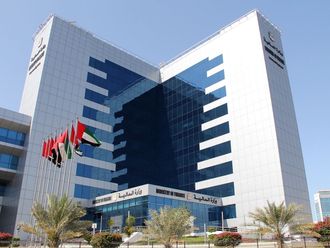While financial institutions in the Eurozone are still faced with falling revenues, banks in the GCC are surging ahead, with their corporate banking division showing “impressive performance”, a report released recently said.
The Corporate Banking Benchmarking report by Boston Consulting Group (BCG) highlighted that GCC banks have managed to increase the corporate divisions’ revenues and net profits, both at their highest and crossing the pre-crisis levels seen about five years ago.
“The impressive performance is even more apparent when compared to the same banks’ retail banking divisions, where revenues and net profits have barely touched 2008 levels,” the report said.
According to the report, the revenue performance index of Middle East banks’ corporate banking divisions has climbed significantly over recent years, from 107 in 2010 to 121 last year. In comparison, the retail divisions of the same banks posted a modest index growth, from 96 in 2010 to 101 in 2012.
At the same time, the profit performance index of corporate banking divisions soared from 82 in 2010 to 106 in 2012. Retail divisions’ index score rose slightly from 75 to 96 over the same period.
A report by A.T. Kearney last year showed that overall profitability of GCC banks has returned to pre-crisis levels in all markets, in spite of an overall slightly increased cost-to-income ratio for banks. As of 2011, however, asset growth remained subdued, staying below pre-crisis levels in all markets.
In terms of return on regulatory capital, GCC corporate banks seem to be trailing behind other markets. The BCG report said nearly two-thirds of the region’s corporate banking divisions are unable to achieve the “generally expected 16 per cent cost of equity hurdle.”
“While banks have been able to increase their revenues and even profits by extending more credit and keeping loan losses in check, they have been limited in their options of diversifying their source of revenues away from standard credit offerings. This has led to no real improvement in the return on regulatory capital in spite of increasing revenues,” said Markus Massi, BCG’s regional leader in wholesale banking and capital markets, and author of the study.
The report suggested that corporate banks will need to come up with a “segment-specific approach” when setting target returns in order to “create incentives aligned with equity investors’ interests.”
“GCC banks tend to have wider variation performance as compared to their counterparts in developed markets across almost all key matrices. This clearly shows the developing nature of the market and the development stage of individual banks, as we see top performing banks able to pull performance levers in a more superior manner,” said Mohammad Turra, principal at BCG’s Dubai office and co-author of the study.
Compared to other markets around the world, banks in the GCC, USA, Asia, as well as in rapidly developing economies and advanced resource economies (Canada and Australia) are showing better performance with high single-digit and double-digit growth.












